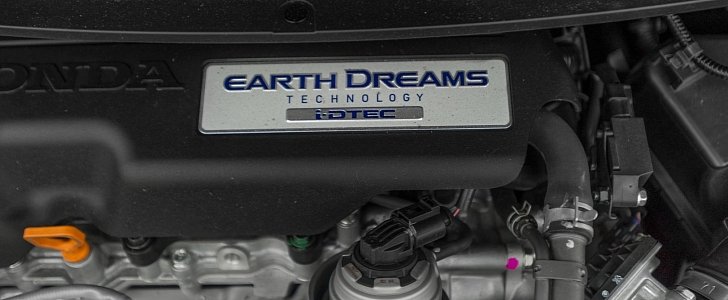Believe it or not, the N engine is the first turbo diesel ever produced by Honda. Introduced in the early 2010s with 1.6 liters of displacement, Earth Dreams technology, and with the i-DTEC badge, this powerplant’s days are numbered in a few markets.
Nikkei Asian Review claims that “Honda will stop selling diesel vehicles in Europe by 2021,” and “the removal will conclude by the time the British assembly plant closes in 2021.” As a brief refresher, the Civic hatchback’s days in Swindon are also numbered.
Volvo is the first mainstream automaker to announce that it’s ceasing development of diesel engines, and Volkswagen is slowly but steadily cutting back as the Germans prepare for the electric offensive spearheaded by the ID.3 hatchback. Honda is so certain in its decision, the company expects two thirds of sales to be hybrid or electric.
The main reason for diesel’s downfall is the emissions scandal from 2015, bringing bad publicity to compression ignition and the Volkswagen Group. Toyota is another brand that said sayMnara to diesel engines, a decision that was easy in every respect given how popular the automaker’s hybrids are in Europe and everywhere else in the world.
In 2018, diesels were responsible for 36 percent of new vehicles sold in the European Union. That’s a big downgrade from the 52 percent share in 2015, and the ratio is expected to drop to 21 percent by 2025. What’s even more important to highlight is the war on internal combustion.
The phase-out of fossil-fuel vehicles is planned to commence in 2021 in Costa Rica, 2025 in Norway, 2030 in Denmark, and 2040 in France and the United Kingdom. We are truly living in a day and age where diesel is the bad guy of internal combustion, and we’re not surprised one bit.
As for the end of diesel as we know it, that’ll wait a bit longer given how many transporters use this type of fuel for big rigs. In other words, electric vehicle technology still has a long way to go until it can be considered viable for semi trucks and heavy-duty vans.
Volvo is the first mainstream automaker to announce that it’s ceasing development of diesel engines, and Volkswagen is slowly but steadily cutting back as the Germans prepare for the electric offensive spearheaded by the ID.3 hatchback. Honda is so certain in its decision, the company expects two thirds of sales to be hybrid or electric.
The main reason for diesel’s downfall is the emissions scandal from 2015, bringing bad publicity to compression ignition and the Volkswagen Group. Toyota is another brand that said sayMnara to diesel engines, a decision that was easy in every respect given how popular the automaker’s hybrids are in Europe and everywhere else in the world.
In 2018, diesels were responsible for 36 percent of new vehicles sold in the European Union. That’s a big downgrade from the 52 percent share in 2015, and the ratio is expected to drop to 21 percent by 2025. What’s even more important to highlight is the war on internal combustion.
The phase-out of fossil-fuel vehicles is planned to commence in 2021 in Costa Rica, 2025 in Norway, 2030 in Denmark, and 2040 in France and the United Kingdom. We are truly living in a day and age where diesel is the bad guy of internal combustion, and we’re not surprised one bit.
As for the end of diesel as we know it, that’ll wait a bit longer given how many transporters use this type of fuel for big rigs. In other words, electric vehicle technology still has a long way to go until it can be considered viable for semi trucks and heavy-duty vans.

















